This post was put together with the help of an optometrist with ten years’ experience from Edinburgh, Scotland, UK. Please note, many of these conditions are extremely rare, but it’s best to be on the safe side and get regular checks.
1. We get to smell some truly terrible things.

We’re sympathetic to anyone with a medical condition like halitosis that can’t be helped, but so many people don’t bother to wash, brush their teeth, or put on clean clothes before a consultation. And we have to lean in very close to them.
2. We see some really gross things too.

If you’ve never seen a pthirus pubis (crab louse) infestation of the eyelashes up close, then you’re pretty darned lucky. It’s not a pretty sight. Those little guys should really just stick to pubes and not go venturing above their station.
3. You wouldn’t believe the number of times people show up to a contact lens check wearing glasses.

“I didn’t know I had to wear/bring them.” REALLY, WHY WOULD YOU THINK THAT?
4. And the way some people treat their lenses shocks us.

Firstly, please do not do this. Also, don’t rinse them in tap water before putting them in. That’s a great way to get one of those horrible amoebal infections.
5. The whole “one or two” thing gets old very quickly.

Optometrist hell is basically asking this question for eternity and listening to the long, drawn-out, agonising “errr” of an indecisive patient. Then there are the patients who just say a random number. Or who just say “two” before we’ve even shown them anything. Just please listen and pay attention.
6. And is there something complicated about the phrase “Please read the bottom line on the chart?”

“Please read the lowest line you can see.” *Patient reads the top line* “No, the lowest line.” “Oh, sorry, I wasn’t listening. Also idk what you mean.” Sigh.
7. Also, why is it so hard for you to move your eyes without moving your head? It’s pretty vexing.
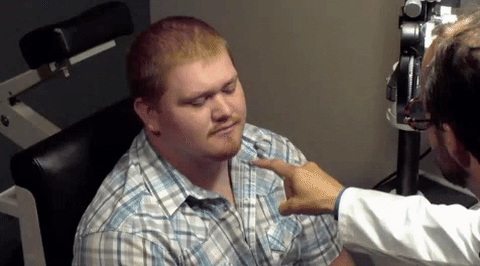
We really need patients to follow our finger with your eyes, not to start twisting this way and that. Why do you think we immobilise you in headrests?
8. But nothing’s more annoying than this:

No, it’s fine, don’t mind us. We’ll just wait while you talk to last night’s Tinder hookup.
9. We can’t help staring at people with eye problems.

If we pass someone with a drooping eyelid (ptosis) or a case of pink eye, we end up peering at their eyes intently and trying to diagnose them. Which seems rude; we don’t wear a T-shirt that says “It’s OK, I’m an optometrist.” Maybe we should.
10. There are truly scary moments when we diagnose a life- and/or sight-threatening situation.
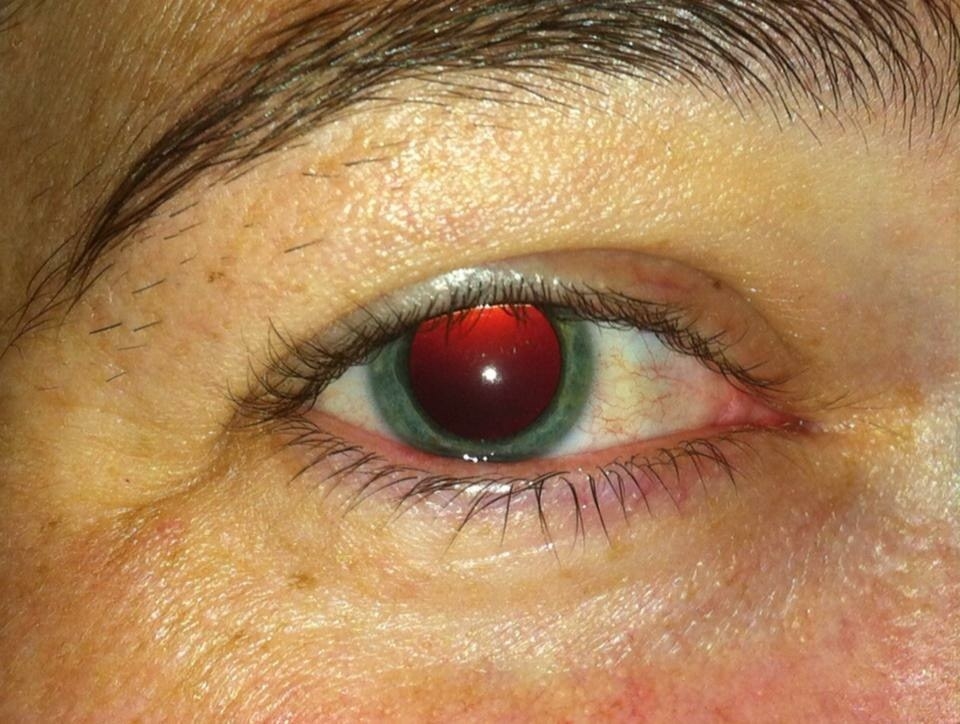
Eye tests aren’t just about checking your ability to read random letters. They can highlight other health conditions. Finding a basal cell carcinoma on a patient’s eyelid or a papilloedema resulting from a brain tumour is scary for us and the patient, but we feel incredibly glad to have spotted it so they can get treatment.
11. People just can’t seem to get their heads around the fact that opticians and optometrists are different.

“An optometrist? What? Do you mean ‘optician’? Do you make glasses? Can you fix mine?” Let’s clear this up once and for all: An optometrist is the person in the dark room who checks your vision and all the other things. A dispensing optician dispenses and fits glasses based on the prescriptions we write. Hope that helps.
12. The yellow stuff we put in your eyes makes us look like permanent nicotine addicts.
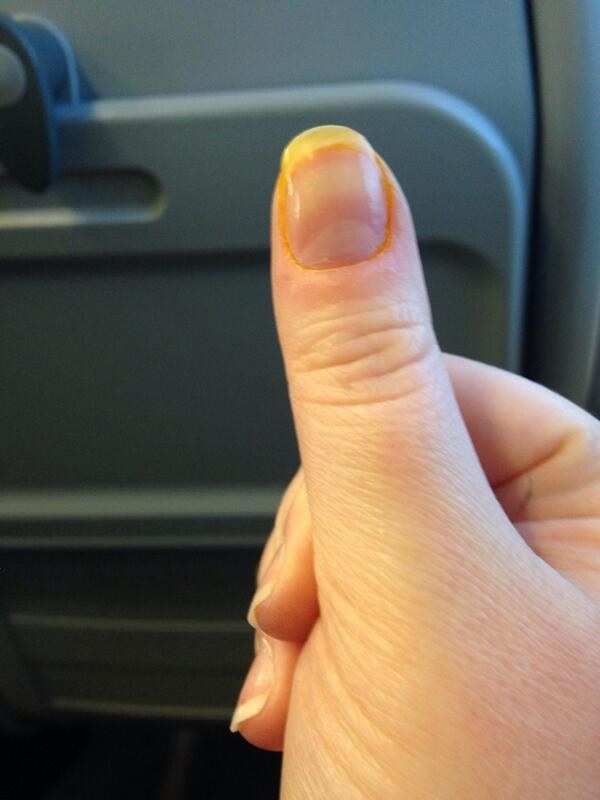
Nothing gets out fluorescein.
13. Parents are harder to deal with than their kids.
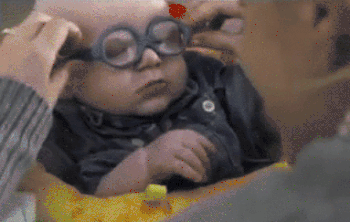
Children might know most letters, but not all of them, so if they skip a letter they don’t know we stop to ask them to trace it in the air. But some parents panic in those cases and start to ask if their child is seriously ill or blind. It doesn’t help the vibe in the room.
14. We want to hear about your eyes, not your life story.
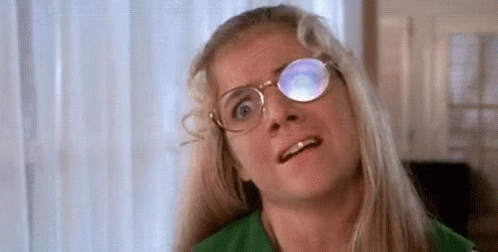
When we ask you if you’ve had changes or problems with your vision since your last visit, we want to know about floaters or strange anomalies, not the time you spotted your cousin Karen across the street and she’d found the glasses you lost three years ago they were red ones and do you know what they still worked pretty well and….
15. And sorry, but please don’t run to us complaining that the cheap glasses you ordered online don’t fit correctly.
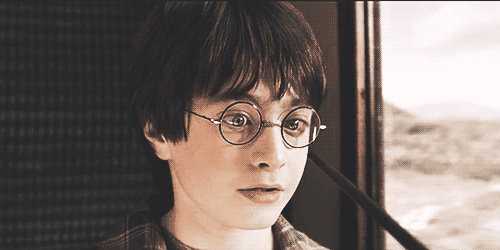
They might seem like a bargain, but fitting glasses properly requires a series of measurements, including your pupillary distance. We can’t wave a magic wand for you and sort out a problem that you’ve caused. Buy them from us, then we’ll talk.
16. We often uncover some worrying findings about our older patients — like the fact that they can barely see.
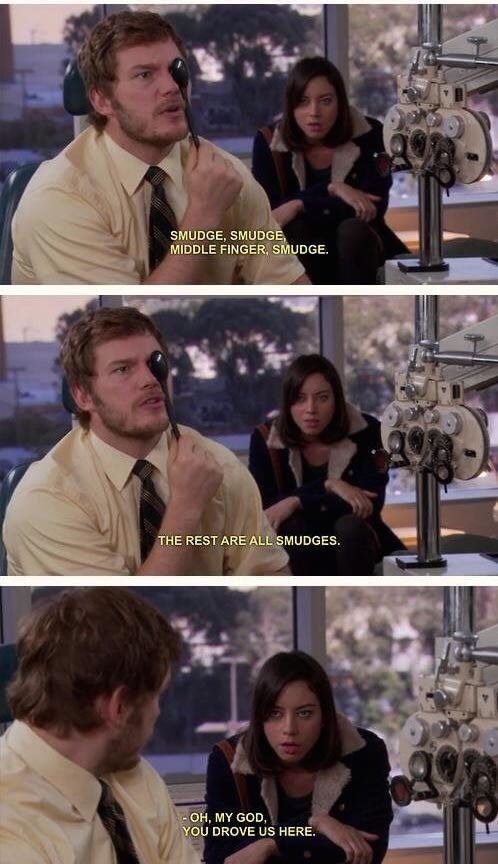
“But I don’t drive very far!” is the most common response. Also, “I only drive on local roads!” Er, that doesn’t really matter. Sadly, we regularly come across patients who shouldn’t be driving and we have to tell them we can’t pass them, but often they’ll sneak to another practice and, hey presto, they’re driving again.
17. And yes, people do try to cheat on their eye exams.
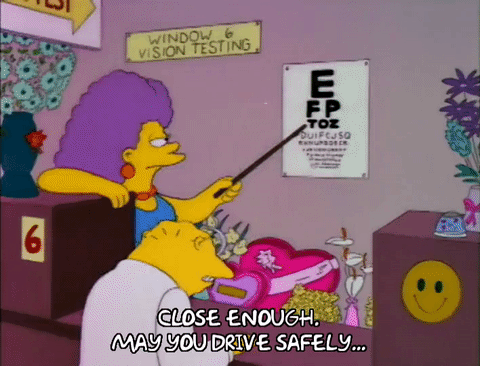
“Which one is clearer, one…or two?”
“Er, which option won’t make you think I’m legally blind so I don’t have to give up my job as a long-distance lorry driver?”
18. But at the end of the day, all of these niggles pale in comparison to the fact we love helping people.
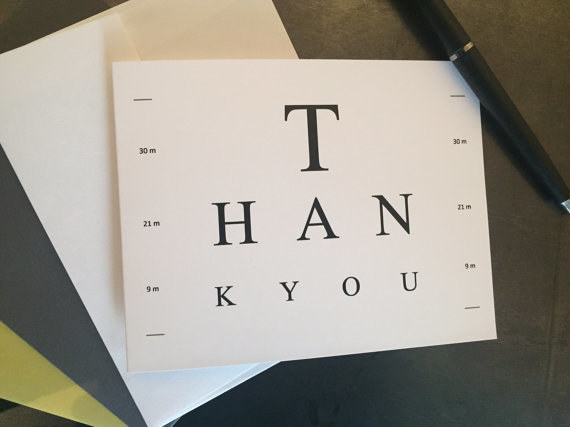
Patients are so appreciative, and we really do make a difference. It’s wonderful to see a kid cracking a smile about his new contact lenses, help a baby see their parents clearly, or hear from an 80-year-old whose glaucoma drops are working.
Still, guys, a little deodorant wouldn’t go amiss now and then, OK?
This post first appeared on Buzzfeed.
What Is An Optometrist?
Optometrist (OD): Vision Care and Eye Care Services
Optometrists take care of primary health care for the eye. After college, they spent 4 years in a professional program and got a doctor of optometry degree. Some optometrists get additional clinical training or complete a specialty fellowship after optometry school. They focus on regular vision care and they:
- Perform eye exams and vision tests.
- Treat conditions like nearsightedness, farsightedness, and astigmatism
- Prescribe and fit eyeglasses and contact lenses
- Provide low-vision aids and vision therapy
- Detects diseases, injuries, and disorders related to the eyes.
Find more health posts on StayWell.
You may also like:
- Astanga Yoga – Frontbending, Counter Poses For Back Bends
- Yoga For Tension Relief | Yoga With Adriene
- People Pleasing; One STEP Recovery Process






